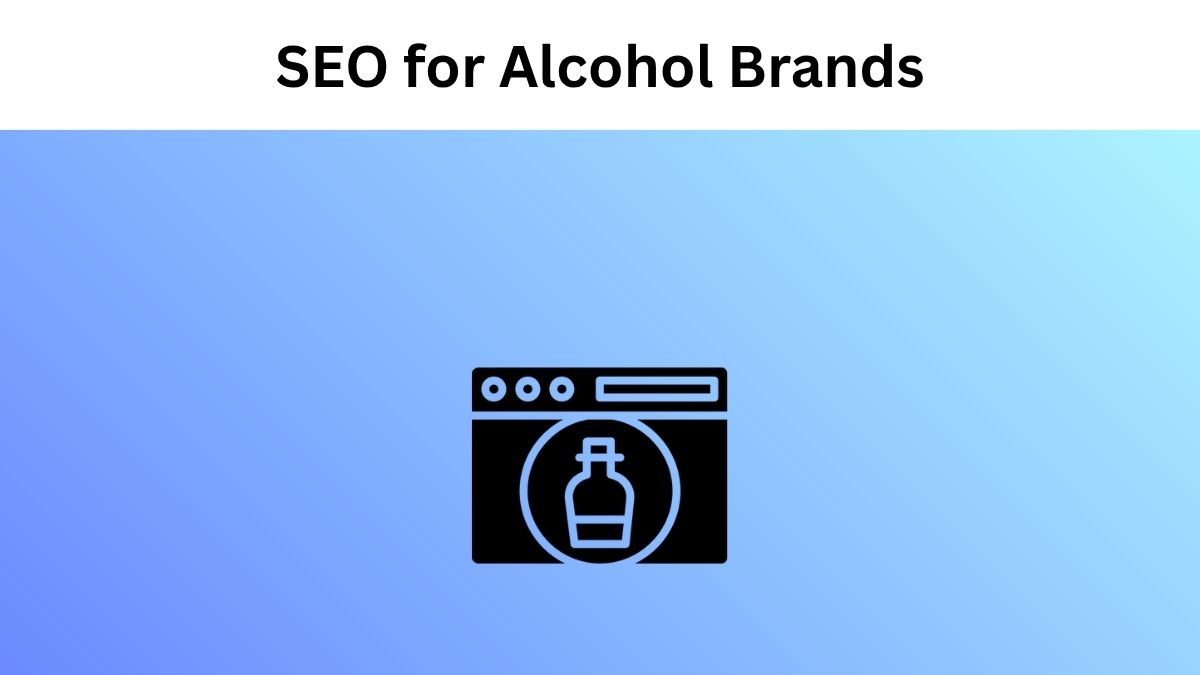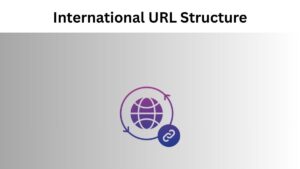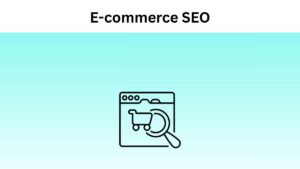Welcome to our comprehensive guide on SEO for Alcohol Brands. In the competitive world of alcohol marketing, a robust online presence is essential for brands to reach their target audience effectively and stand out in the market.
With more consumers researching and purchasing alcoholic beverages online, mastering SEO strategies is vital to capturing their attention and driving sales. This blog will explore tailored SEO techniques specifically designed for alcohol brands.
From navigating advertising restrictions to optimising product descriptions and leveraging social media, we will equip you with the knowledge and tools to thrive in the digital landscape of the alcohol industry. So, let’s raise a virtual toast and unlock SEO’s full potential to elevate your alcohol brand’s success.
Top Tricks and Tips for SEO for Alcohol Brands
Consumer Transparency is a Must
In today’s era, consumers have become increasingly discerning and well-informed, often researching thoroughly before finalising their wine purchases. They seek effortless access to comprehensive price lists and detailed product information. The internet has further facilitated this access to information, empowering consumers to compare different products and easily verify data. Notably, transparency is a significant aspect that extends to wine storage, transportation, and traceability.
Consequently, winemakers worldwide embrace detailing and complementing the materials used in their bottles and production ingredients. To accommodate the vast amount of information within the confined space of wineries, savvy marketers create custom QR codes to store essential information and provide additional details about their services or products that consumers may want. This blend of perplexity, burstiness, and unpredictability caters to the evolving needs of discerning consumers while fostering a deeper engagement with the world of wine.
Adaptation and Agile Thinking
In the 21st century, successful marketers prioritise individuality, adaptation and agile thinking. They recognise that brands must revolve around customers, who now seek highly personalised products. Consequently, wine marketing strategies have evolved, emphasising the creation of unique brands that deeply resonate with consumer needs. This shift towards consumer-centricity has become crucial for winemakers, prompting them to revamp their marketing approaches.
A notable trend is the use of bottles that label the customer’s identity, enhancing wine marketing efforts and reinforcing the idea of tailored experiences. By embracing individuality, adaptation, and catering to customer preferences, winemakers can establish meaningful connections with their target audience and thrive in this dynamic era.
Unequivocally, establishing positive customer relationships can lead to effective marketing strategies for winemakers. One crucial office task that greatly impacts customer satisfaction is accurate, efficient invoice management for brewing. Properly managed invoices get chores out of the way sooner, rather than later.
Wine Events and Tastings
Creating an enjoyable customer experience while drinking wine in the basement with friends, accompanied by classical music, can significantly contribute to the success of your marketing endeavours. Wineries worldwide have adopted engaging in outdoor events or open gatherings to connect more intimately with their target audience. Although not a groundbreaking approach, it remains a valuable marketing strategy. These events allow wineries to showcase their brand, forge closer relationships with existing customers, and attract new ones.
To maximise the effectiveness of their marketing efforts, winemakers should be willing to take risks and dare to be innovative. Implementing unique elements such as vibrant wallpapers, branded wine glasses, and colourful balloons can elevate the overall experience and leave a lasting impression on attendees. By infusing creativity and fun into these events, wineries can create a memorable atmosphere that resonates with customers, thereby fostering brand loyalty and promoting word of mouth.
Environmental Protection
In today’s world, most consumers are deeply concerned about their surroundings and the environmental impact of their choices. In response to this growing awareness, winemakers have shifted their focus, prioritising the production of environmentally friendly wines and spirits. This shift has led to greater success for breweries that demonstrate a genuine commitment to animal welfare, climate change mitigation, and environmental responsibility.
The emphasis on sustainability and eco-friendliness is equally applicable to marketing efforts. Consumers now prefer wines low in sulfites, organically produced, and sourced from natural processes. As such, wineries that align their marketing strategies with these environmentally conscious preferences will likely enjoy greater market success.
Authenticity
Consumers are always intrigued by the stories hidden behind the brands they encounter. Such narratives elevate the experience of alcohol drinkers, allowing them to connect with their favourite brands on a deeper level. While sensory aspects like appearance, smell, and taste are essential, they are no longer sufficient to evoke a special feeling in consumers and prospects. In response, winemakers operating in markets flooded with cheap products have crafted unique alternatives that genuinely resonate with their customers.
Investing in eco-friendly production practices and sourcing high-quality raw materials is a key strategy. Modern alcohol marketing trends heavily focus on videos, prompting wineries to leverage this medium to share the stories of the people behind the wine, the winemaking process, and the beautiful vineyards.
By highlighting their commitment to eco-friendly practices and the use of premium ingredients, wineries can appeal to environmentally conscious consumers who seek more than just a product. Through compelling videos, they can showcase the passion and dedication of the individuals crafting each bottle of wine. This personalised touch adds authenticity and emotional appeal to the brand, deepening the consumer’s connection and loyalty.
Flavor Specialization vs. Variety
Consumers have perceived that the wine market needs more variety, often finding winemakers producing similar flavours. To address this concern, wineries worldwide have begun offering specialised products tailored to the unique needs of specific target segments. As a result, maintaining large wine assortments is no longer economically feasible or necessary for a successful distributor marketing strategy.
Winemakers can create a more appealing, relevant product lineup by tailoring their offerings to the distinct preferences of different customer groups. This approach allows them to deepen their connection with specific customer segments, enhancing brand loyalty and consumer satisfaction.
The shift towards specialised products streamlines the winemaking process, enabling wineries to allocate their resources more efficiently. By producing wines that resonate with specific consumer tastes and preferences, wineries can improve their market competitiveness and increase overall sales.
Also Read: Best Safe ROM Sites
Website Optimisation and Experience
Creating a website that mirrors your winery’s unique in-person experience is essential in today’s digital age. A well-designed website that aligns with user expectations and offers an extraordinary online experience is critical for extending and reinforcing your brand throughout the customer’s journey.
Beyond mere aesthetics, a great winery website should encompass the following elements:
Search Engine Optimisation (SEO) for Wine Brands
Focusing on Local SEO rankings is imperative to reach both the local market and potential visitors to your winery’s location. By optimising your website for relevant keywords and local searches, you can ensure greater visibility and attract more interested customers.
Information Architecture
Ensuring users can easily find the information they need is crucial for a great user experience. A well-organised and intuitive website structure helps users navigate effortlessly, encouraging them to explore your offerings further.
Sales Opportunities
While not all wineries can directly sell alcohol on their websites, there are still opportunities to expand your product offerings. Consider featuring wine-inspired home decor, wine accessories, and branded merchandise to expand your sales channels and strengthen your brand presence.
Fantastic Imagery
High-quality imagery is a powerful tool for captivating visitors. Including professional photographs of your wines, vineyard, and events, as well as drone videos of your facility, can create a visually appealing and immersive experience for users.
Mobile Optimization
As millions of people use mobile phones to browse the internet, wineries must ensure their websites are optimised for mobile use. Optimising web pages for mobile devices reaches a broader audience and increases the likelihood of converting visitors into customers.
Well-Being and Health
In today’s world, consumers seek a balanced, fulfilling life, pursuing pleasure while also prioritising their well-being and the welfare of their community. The well-being of individuals and the broader society is paramount to them.
Wineries recognise the significance of this concern and strive to offer their customers a sense of fulfilment and positive impact through their products. They understand that consumers seek delightful experiences and a deeper connection with brands that align with their values.
By emphasising sustainable practices, community involvement, and ethical considerations in their winemaking, wineries can assure customers that their purchases contribute to the well-being of both themselves and others. This commitment to social responsibility resonates with conscious consumers, who are increasingly seeking products that go beyond mere enjoyment and have a positive impact on society.
Wine Clubs
Wine clubs tailored to wine enthusiasts remain popular, offering wineries a valuable source of incremental sales. While tasting rooms contribute significantly to Direct-To-Consumer (DTC) sales, wine clubs are close behind, accounting for approximately 33 per cent of sales, making them one of the most profitable business channels for wineries.
In today’s competitive market, nearly every wine brand or retailer with marketing expertise uses wine clubs to foster strong relationships with VIP customers and generate substantial revenue. The most successful wine clubs cater to the preferences of dedicated wine lovers by offering enticing benefits such as exclusive access to special bottlings, invitations to private dinners, tastings, and exclusive events.
Social Media
Social networking platforms have emerged as powerful tools for brands to engage their target audiences through social media marketing. These platforms enable marketers to segment their audience based on purchase preferences and personal information, facilitating the rapid dissemination of media messages to millions of users.
For winemakers, using platforms like Facebook and Twitter offers an excellent opportunity to share captivating videos and photos that showcase the current state of their cellar, vineyard, and wine sales. Through these channels, winemakers can connect with their customers more personally, responding to their inquiries and demonstrating genuine care and appreciation for their support.
Among the most effective social media networks for wineries to engage customers are Pinterest, Instagram, and Facebook. These platforms allow wineries to visually showcase their wines, vineyards, and events, captivating audiences with enticing imagery. Engaging content, such as wine pairings, behind-the-scenes glimpses, and customer testimonials, can further enhance the connection with their audience.
Also Read: GenYouTube – YouTube Video Downloader
Aerial Photography and Drone Videos of Wineries
Nothing is more captivating than a high-quality flyover shot of a winery during the vibrant fall season when the grapes are ripe and the landscape is in full bloom. For marketers seeking to create engaging content, capturing aerial drone photography is an effective tactic to differentiate themselves from the competition and offer users a mesmerising bird’s-eye view of their beautiful winery facility.
Aerial drone photography offers a unique perspective that showcases the winery’s stunning surroundings, sprawling vineyards, and picturesque landscapes in a way that traditional photography or video cannot achieve. This captivating visual content not only stands out from the crowd but also captivates viewers, drawing them closer to the winery’s brand and story.
By incorporating aerial drone shots into their marketing efforts, wineries can elevate their online presence and create a lasting impression on their audience. The awe-inspiring views captured above can transport viewers into a world of beauty and allure, fostering a deeper connection and curiosity about the winery.
User-Generated Content
User-generated content (UGC) refers to content created by a brand’s customers voluntarily. With over 95 million images uploaded to Instagram daily, UGC has become one of the most scalable methods for wineries to showcase their products, celebrate their fans, and drive revenue. Encouraging and sharing user-generated content on Instagram has emerged as a trendy and highly effective tactic for wineries.
Wine drinkers are eager to share pictures of their favourite wines or their tasting experiences, and they are delighted to have their content reposted by the winery, as long as they receive credit in the caption. This symbiotic relationship benefits both the winery and its customers, enabling the winery to leverage authentic and relatable content created by its passionate fans.
By featuring UGC on their Instagram feed, wineries can build a stronger sense of community and engagement with their audience. The reposting of customer content demonstrates appreciation for their customers’ enthusiasm and amplifies the brand’s message to a wider audience.
Also Read: Best Fake ID Websites for Scannable Cards
Conclusion
As we conclude our journey through the realm of SEO for Alcohol Brands, you now possess invaluable insights and strategies to strengthen your brand’s online presence and drive success in the competitive market. By harnessing the power of SEO, you can reach a wider audience, improve your website’s visibility in search results, and establish your brand as a trusted authority in the alcohol industry. Adapting to advertising restrictions, optimising product descriptions, and leveraging social media will be crucial in engaging with consumers and building brand loyalty.
Stay updated with evolving SEO trends and regulations to ensure your strategies remain effective and compliant. With a well-executed SEO plan, your alcohol brand can flourish, connect with consumers on a deeper level, and thrive in the dynamic world of alcoholic beverages. Here’s to a prosperous and impactful journey as you continue to raise the bar for your alcohol brand’s success. Cheers!
FAQs:
How can SEO benefit my alcohol brand’s marketing efforts?
SEO (Search Engine Optimisation) can bring numerous benefits to your alcohol brand’s marketing efforts. By implementing effective SEO strategies, your brand can enhance its visibility in search engine results, making it easier for consumers to discover and interact with your products online. Increased visibility can lead to higher website traffic, greater brand exposure, and potentially increased sales. SEO also helps your brand to establish authority and credibility in the market, as search engines reward websites with valuable and relevant content. By optimising your product pages, creating engaging content, and leveraging social media, SEO can contribute significantly to your alcohol brand’s marketing success.
How can I navigate advertising restrictions for alcohol products in my SEO efforts?
Navigating advertising restrictions for alcohol products requires careful planning and adherence to legal guidelines. As regulations vary by country and region, it’s essential to research and understand the specific advertising rules that apply to your target markets. While traditional advertising channels may have limitations, SEO allows you to promote your alcohol brand indirectly. Focus on creating educational, informative content about your products, highlighting their unique qualities and responsible alcohol consumption. Use social media and influencer marketing to reach your audience without directly promoting alcohol. By adopting compliant SEO practices and being mindful of the rules, you can establish a robust online presence for your alcohol brand while adhering to advertising regulations.
How can social media affect my alcohol brand’s SEO strategy?
Social media has a significant influence on your alcohol brand’s SEO strategy, driving traffic, engagement, and brand awareness. Sharing valuable, shareable content on social media platforms can attract more users, boosting your website’s organic traffic and search engine rankings. Social media signals, such as likes, shares, and comments, can influence search engine algorithms and enhance SEO rankings. Additionally, social media allows you to connect directly with your audience, receive feedback, and build brand loyalty. Integrating social media marketing into your overall SEO strategy can amplify your alcohol brand’s online presence and foster meaningful consumer relationships.
Check out relevant guides for other local businesses, too:






